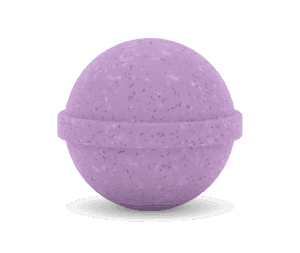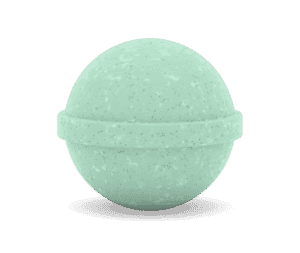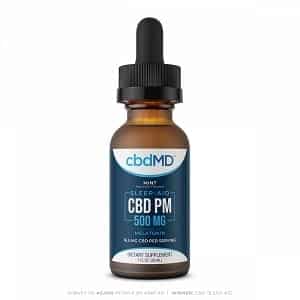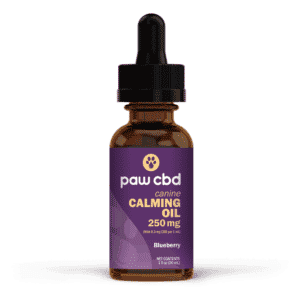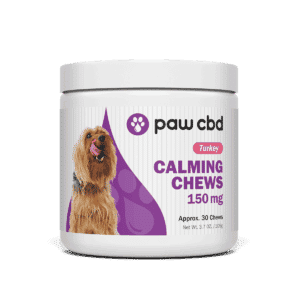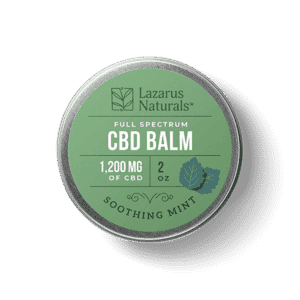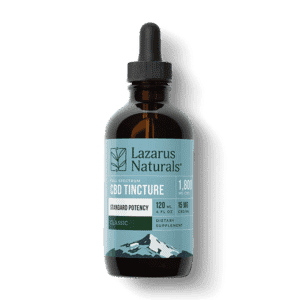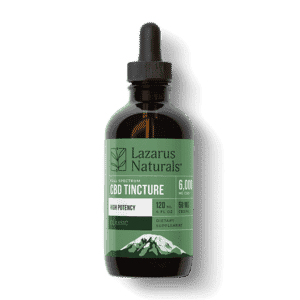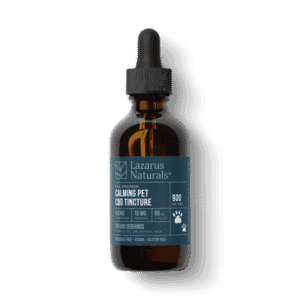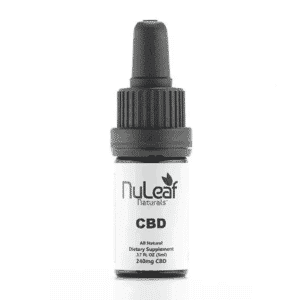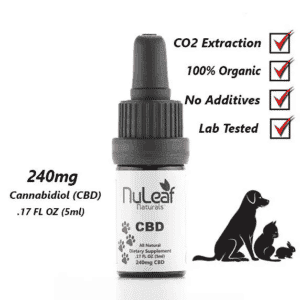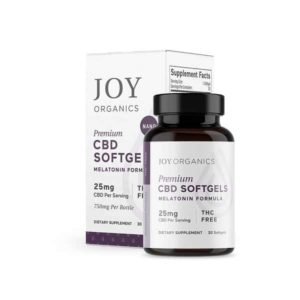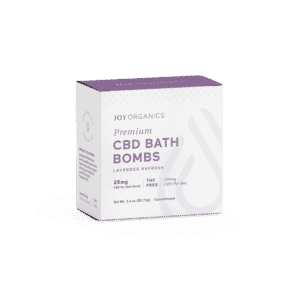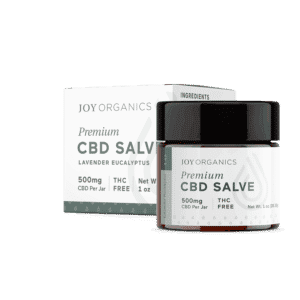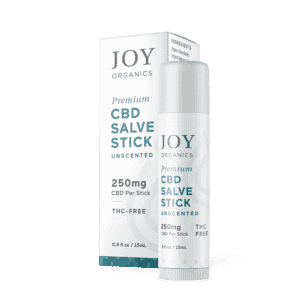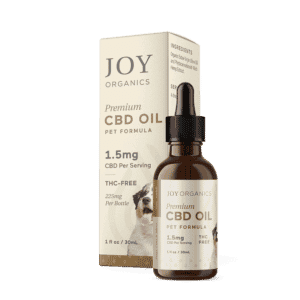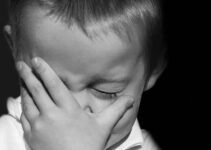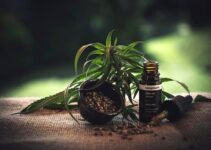Can CBD ease your anxiety?
The answer is… maybe.
Cannabidiol or CBD has become a popular treatment alternative for general worries and more serious anxiety-related conditions, such as generalized anxiety disorder (GAD).
Because the legalization of cannabis (marijuana) has become more widespread, CBD stores have begun to pop up throughout the US (in the states that have legalized CBD use). Within these stores, a consumer can find a variety of CBD products, such as tinctures, edibles, salves, supplements, and even facial and bath products.
Presumably, these products have the power to ease anxiety and soothe frazzled nerves.
Here is everything you need to know about these CBD products in terms of their helpfulness for anxiety:
Table of Contents
Most CBD products are made from the oil of a cannabis plant, hence, CBD oil.
It’s important to know that cannabidiol (CBD oil) does not make you feel “high” unlike THC (tetrahydrocannabinol), the main property found in marijuana.
In other words, although CBD and marijuana derive from the same cannabis plant, cannabidiol and THC are two different properties – one will get you “high” (THC) while the other one (cannabidiol) will not. Still, CBD is not legal in every state.
When examining the effectiveness of CBD as an alternative anxiety treatment, the results look promising. Multiple studies [1] have found that CBD could be beneficial for those experiencing everyday woes and those suffering from anxiety disorders.
Researchers [2] have also found that CBD reduces stress and anxiety in rats, which bodes well for those grappling with generalized anxiety.
Disclaimer and How I use CBD Oil
I must be transparent about my familiarity with CBD products. In my state, CBD is legal, although, products must contain less than 0.3% THC (the ingredient that makes you “high” in marijuana).
Because I suffer from chronic pain (due to a chronic illness), I use a CBD oil tincture from time-to-time, when traditional and my prescribed medications are ineffective.
I personally purchase my CBD oil (for chronic pain) from Lazarus Naturals; however, many companies are reputable and provide pure CBD products for anxiety.
I do not suffer from an anxiety disorder, however, I have noticed that CBD “calms” me when I am stressed or overwhelmed. Do I recommend CBD for anxiety or anxiety disorders? I cannot say. CBD may reduce anxiety symptoms, as it has reduced my chronic pain, however, that is not guaranteed.
Therefore, the best things you can do are research “CBD for anxiety,” and speak with your doctor. He or she will be able to offer guidance on your specific condition.
Can CBD Help With Anxiety? And, If So How?
It depends.
Some anxiety-prone people swear that CBD has helped reduce or eliminate their anxiety symptoms; while others have not received much relief from it.
A 2015 study [3] found that using CBD may be beneficial for those suffering from anxiety disorders, such as social anxiety disorder (SAD), post-traumatic stress disorder (PTSD), obsessive-compulsive disorder (OCD), panic disorder (PD), and generalized anxiety disorder (GAD).
Participants reported that CBD helped “soothe” or ease their anxiety symptoms, while also reducing the frequency and intensity of their panic attacks. [3]
However, a 2017 study [4] found that CBD has little-to-no effect on anxiety. According to participants, CBD did not “soften” or improve their mood or anxiety.
Children
Children are prone to anxiety, especially at school and in social situations (i.e. parties). When this occurs, it prevents them from behaving “authentically” or reacting in the same way as non-anxious children. This not only stunts their emotional, social, academic, mental, and cognitive growth but also damages their self-esteem and self-confidence.
As a result, some parents have started giving their anxious children CBD in addition to or in favor of traditional anti-anxiety medications. This is a popular alternative treatment for children, because, unlike THC, the main property in cannabis (marijuana), CBD does not cause someone to become “high.”
It also is non-addictive, and it has little-to-no side-effects for most people – even children. This is appealing for parents, who are struggling to help their children cope with unpleasant or crippling anxiety.
It is also important to note that although CBD is used for a wide variety of ailments and health concerns in adults, most, if not all, studies [5]on CBD and children are focused on its use for pediatric epilepsy.
However, parents are increasingly providing their children with CBD products (i.e. edibles and tinctures) to help them better manage other conditions, such as anxiety, chronic pain, ADHD, depression, and autism. [5]
Is it safe for children?
Most children can safely use CBD products – in small increments or doses. However, it is important to understand that CBD research is still at the beginning stages, especially when it comes to its effect on children.
Still, researchers [6] believe that CBD is generally safe for children suffering from everyday anxiety and anxiety disorders.
So even though most CBD studies have been performed on animals, a limited number of human trials [7] have found that Epidiolex, a CBD medication, has reduced seizures in children suffering from severe epilepsy (i.e. Dravet Syndrome and Lennox-Gastaut Syndrome).
Thus, in 2018, the Food and Drug Administration (FDA) [6] approved the use of Epidiolex, the first CBD prescription medication for the treatment of seizures in epileptic patients. [8]
With this new approval in tow, researchers have begun to spend more time and resources studying how CBD can help children suffering from other conditions like anxiety disorders. [8]
Dogs
At this time there is no “official” research data on the effectiveness of CBD in dogs suffering from anxiety-like behaviors. However, scientists and researchers alike are aware of how cannabinoids interact with the endocannabinoid receptors, located within your nervous systems (central and peripheral). [9]
These nervous systems are important because they help create and maintain homeostasis [9] or balance in your body, which is needed to keep anxiety levels low.
But, even though studies [10] on CBD in dogs are limited, there is still subjective evidence (from dog parents) that CBD helps relieve chronic anxiety in some dogs.
In fact, according to Dr. Robert Klein, American CBD practitioner, CBD is beneficial for anxiety because it contains anti-inflammatory properties and anxiety-relief – factors that can lead to behavioral problems and excessive worrying in some pets. [11]
How Does CBD Reduce or Eliminate Anxiety?
To understand how CBD can reduce or eliminate anxiety, you must first understand the human body. Your body contains a variety of protein-based receptors that adhere or stick to various cells within your body. When your body comes in contact with stimuli it sends a signal or message to these receptors.
Researchers believe that CBD interacts with two of your receptors – CB1 and CB2. [12] These receptors are located in the central and peripheral nervous systems. When CBD comes in contact with CB1 and CB2, it blocks pain, irregular electrical pulses in your brain, “abnormal” brain activity, and anxiety.[12]
Understand, however, that the exact way CBD performs these functions (i.e. blocking pain and easing behavioral problems and anxiety) in the body is still somewhat unclear.[12]
However, the answer may stem from a change in how these receptors receive signals from stimuli or how your body decodes and transmits these signals to your receptors. [12]
Some researchers [13] believe that CBD alters, changes, or increases serotonin signals. This is important for people prone to general angst or anxiety disorders, because serotonin, a neurotransmitter, plays a significant role in your mental health. Low serotonin levels not only increase your risk of mood disorders like depression but also anxiety.[13]
Keep in mind that the traditional treatment for mood disorders and anxiety (low serotonin levels) involves selective serotonin reuptake inhibitors (SSRIs) (i.e. Zoloft, Celexa, Lexapro, Prozac, and Paxil). [14] Even though SSRIs are considered antidepressants; they are also commonly used to treat anxiety disorders. [14]
Studies [15]suggest that these prescription medications are effective in treating general angst and anxiety; however, some people find that CBD more effectively reduces or eliminates their anxiety symptoms.
Ultimately, the consensus is that CBD works with your endocannabinoid system or signal system to balance your body and “calm” your nervous systems, so you experience fewer panic attacks, reduced anxiety symptoms, and sounder sleep. [15]
*You should never alter or discontinue your prescribed treatment plan without discussing your intentions with your doctor.
My Picks for the Top 4 CBD Products for Anxiety
The good news is there are CBD products that can help ease or eliminate anxiety symptoms.
If cannabis (marijuana) is legal for medicinal or recreational or CBD is legal in your state, you can purchase it in stores or online without a license or prescription, depending on your needs and intent. [16]
So, after speaking with clients, friends, and associates about the CBD products they use, I have compiled a list of products that may help ease general angst and reduce anxiety symptoms.
Note: My goal is to provide CBD product suggestions that could provide you with a better quality of life. But, because body chemistries vary, there is no guarantee that these products can or will reduce or alleviate your anxiety symptoms.
Listed below are my top 4 CBD product picks for anxiety:
#1. CBDMD (Best Overall)
Prices range from $10 to $75, per item.
Products to try:
- CBD Bath Bomb Relax: Lavender – 100 mg (THC-free)

- CBD Bath Bomb Restore: Blend – 100 mg (THC-free)

- CBD PM for Sleep: Mint – 500 mg (THC-free and also offered in capsules for when anxiety prevents you from falling and staying asleep at night)

- Pet CBD Oil Calming Tinctures for Dogs: Blueberry – 250 mg (Also offered in 500mg for your anxious “fur baby”)

- Pet CBD Calming Soft Chews for Dogs: Turkey – 150 mg (THC-free and offered in 300mg & 600mg)
#2. Lazarus Naturals (Best Bang for Your Bucks and What I Use)
Prices range from $12 to $200, per bottle or item. Use promo code parentingpod and receive a 10% discount on most items.
Products to try:
- Relaxation Blend 25mg CBD Isolate Capsules – 25mg (THC-free)

- CBD Massage Oil – 200mg, 800mg & 1600mg (For stress-related anxiety)

- Soothing Mint Full-Spectrum CBD Balm – 300mg & 1200mg (Also offered in Lavender)

- Standard Potency Full-Spectrum CBD Tincture – 225mg, 900mg & 1800 mg (My personal favorite)

- High Potency Full-Spectrum CBD Tincture – 750mg, 3,000mg & 6000mg (For moderate to severe anxiety)

- Calming CBD Oil Pet Tincture – 225mg & 900mg (Full-spectrum but also offered in a sensitive THC-Free version – for your anxious “fur baby”)

Lazarus Naturals is where I personally purchase my CBD oil (for chronic pain).
Their products are highly affordable, which is beneficial because CBD oils and products typically come in small qualities, which means you may have to purchase them every month. Therefore, affordability and purity were the two most important factors for me, when deciding what company to purchase from.
I personally like Lazarus Naturals because it offers isolate (no THC) and full-spectrum (more potent with 0.3% of THC) CBD products for a wide variety of conditions, including anxiety.
I also like this company because it offers “assistance” or a discount for veterans and those who need CBD for medical reasons but cannot afford to purchase it at standard retail prices. Not many companies offer this perk, so, in my opinion, offering to help people in need speaks to the company’s integrity.
In addition, Lazarus Naturals has offered a 10% discount to Parenting Pod readers 🙂 To take advantage of this discount use promo code parentingpod in the shopping cart.
#3. NuLeaf Naturals (Best Full-Spectrum CBD Oil)
Prices range from $37.50 to $2,000, per bottle.
- Full Spectrum CBD Oil, High-Grade Hemp Extract – 240mg (THC and high potency and high-grade pure CBD – also offered in 725mg, 1450mg, 2425mg & 4850mg)

- Full Spectrum Pet CBD Oil, High-Grade Hemp Extract – 50mg (THC and for anxious cats & dogs)

#4. Joy Organics (Best THC-Free & Most Therapeutic)
Prices range from $20 to $90, per item.
- CBD Softgels with Melatonin for Sleep – 25mg (THC-free)

- CBD Bath Bombs – 25mg (THC-free)

- CBD Salve – 500mg (THC-free)

- CBD Salve Stick – 250mg (THC-free)

- CBD Cream – 250mg (THC-free)

- CBD Oil Tincture for Pets – 1.5mg, 2mg & 3mg (THC-free for anxious pets)

*CBD oil tinctures typically come in 15mL and 30mL bottles, but some companies offer it in bigger bottles.
Discounts on CBD Oil
Like I said, I personally get my CBD oil from Lazarus Naturals. We’ve been able to arrange for them to give a 10% discount to Parenting Pod readers. To take advantage of this discount click on the link below and use promo code parentingpod in the shopping cart.
Click Here to Get a 10% Discount at Lazarus Naturals (use promo code parentingpod)
How I Comprised This List
Although I use CBD oil for chronic pain, I have never used it to treat anxiety.
Therefore, my product choices stem completely from my conversations with those, who suffer from anxiety and use CBD oil to manage the symptoms and scientific or research studies.
To make my selections for the best and most therapeutic CBD products for anxiety, I researched the most popular CBD brands on the market. I looked at each brand, examining customer reviews and ratings, and third-party lab reports.
I also talked to my clients, friends, and associates who claim to use CBD for anxiety. Based on my results, I removed various companies and products from this list until I was left with three CBD companies and products I felt were the most beneficial, reputable and reliable.
CBD Strength & Dosage for Anxiety
If you are thinking about trying CBD for your anxiety, discuss your plans with your doctor before you alter or add anything to your prescribed treatment plan. Your doctor can help you determine what strength and dose are appropriate for your type of anxiety.
However, the National Organization for the Reform of Marijuana Laws cautions that many, if not most currently available CBD products, do not contain enough CBD to replicate the therapeutic effects (a reduction in anxiety symptoms) witnessed during clinical trials. [17]
Still, one recent study[18] examined the effect of CBD on anxious individuals before speaking in public. Researchers found that participants, who received a CBD oil extract, approximately 90-minutes before speaking, experienced a decline in pre-event anxiety. [18]
It is important to note that those, who received placebos and those who received 150mg or less of CBD did not experience a noticeable change in their anxiety symptoms. [18]
On the same token, those, who received 600mg of CBD, also did not appear to benefit from CBD use. [18]Additional research is needed before “official” CBD dosing guidelines for anxiety can be developed and enacted. [18]
So, because CBD is unregulated, there is no standard dosage or recommendation for it.
There are also no current large-scale human trials available that explore universal dosing guidelines. However, many CBD practitioners recommend that anxiety-sufferers start slow when using CBD and gradually increase their use until they find the right strength and dosage for them.
For example, if you are experiencing mild anxiety, you should start with 30mg of CBD, divided between two doses – once upon waking in the morning and once before bed. If all goes well on 30mg, you can increase your intake by 10 or 15mg every 3 to 4 days. [19]
If you decide to use a CBD tincture or extract, place 2 to 3 drops under your tongue and hold it there for at least 60 seconds without swallowing it. After swallowing the oil, drink an 8oz. glass of water. [19]
If you decide to take a CBD supplement, ingest 1 to 3 capsules or pills daily. Start with 25mg CBD capsules or pills and gradually increase the milligrams and frequency until you experience a decline in anxiety symptoms. [19]
But, if you are grappling with moderate-to-severe anxiety, you may need to take 100mg of CBD a day to experience the therapeutic benefits of it – i.e. fewer panic attacks, reduced anxiety symptoms, etc. [19]
If the lower doses do not appear to be working, you can always increase the strength and frequency of the CBD. Once you start seeing long-term improvement in your anxiety symptoms, slowly start reducing the dosage to a maintenance level. [19]
Note: According to several studies [20] on the effects of CBD, it is almost impossible to have a fatal overdose on CBD. Researchers [21] suggest that CBD is non-toxic even at extremely high levels like 1500mg daily.
*If you are unsure what dose to take for your anxiety, CBD calculators can help you determine the correct strength and dosage for you.
Common CBD Dosages: 300 mg, 600mg & 1000mg
- Low Potency CBD (300 mg)
- Medium Potency CBD (600 mg)
- High Potency CBD (1,000 mg)
The most common dosage for someone suffering from anxiety is 600 mg of CBD (30mL) bottle. A single dose in a 600mg (30mL) bottle is equal to 1mL (20 drops) of CBD oil. Most individuals, however, only take 10 to 14 drops of the oil daily to “calm” or alleviate their anxiety.
Those with moderate-to-severe anxiety, on the other hand, are more likely to opt for high potency 1,000 mg (30mL) CBD oil. These individuals typically take about 20 drops daily (broken up into increments throughout the day) for anxiety-relief.
Once anxiety sufferers have received some much-needed relief, they tend to opt for 300mg of CBD. This dose is often used as a “maintenance dose” because of its low potency. A single dose in a 300mg (30mL) bottle of CBD oil is equal to 1mL (20 drops). These individuals typically use 5 to 7 drops of the oil daily to keep the anxiety and panic attacks away.
***Remember, many factors go into determining the correct strength and dose for individuals seeking anxiety-relief. Some of these factors include age, weight, metabolism, body chemistry, intent, needs, purpose, CBD-based product, and even gender.
Research & Studies
As mentioned above, most of what we know about CBD and anxiety comes from animal studies and clinical trials.
A 2015 study[3]found that CBD could be a viable acute treatment for a variety of anxiety disorders, such as generalized anxiety disorder (GAD), panic disorder (PD), social anxiety disorder (SAD), obsessive-compulsive disorder (OCD), and post-traumatic stress disorder (PTSD). These results are promising. [3]
Also, a 2011 study [22] found that CBD may ease social anxiety in some individuals. Similarly, another study [18]found that CBD not only reduces or alleviates anxiety, but also improves cognitive function, and emotional pain when performing stressful and overwhelming tasks.
Generalized Anxiety
National Institute of Drug Abuse hearings [23] suggests that CBD can effectively lessen or eliminate stress in rats. According to the researchers, the rats appeared to exhibit fewer physiological signs of anxiety (i.e. a lower heart rate, less agitation, and more focus) after being administered CBD oil. [23]
This is important because stress and anxiety are intertwined. Stress can trigger anxiety and anxiety can trigger stress. It’s a cyclic relationship.
Social Anxiety Disorder & PTSD
Researchers [24] have determined that CBD may be an effective treatment for other forms of anxiety-like conditions like social anxiety disorder (SAD) and post-traumatic stress disorder (PTSD). It may also help anxious insomniacs fall asleep more soundly at night. [24]
A 2011 study <[25] found that 400mg of CBD alleviated emotional distress in those, who suffer from social anxiety. These individuals reported feeling calmer and more “at ease” during social occasions and events.[25]
Other studies [26] have indicated that CBD can also aid in PTSD-relief. Participants reported having fewer PTSD symptoms, such as frightening nightmares/night terrors and disturbing flashbacks, after using CBD-based products.[26]
Therefore, researchers [26] determined that CBD can effectively be used as a primary PTSD treatment and as a supplement for a traditional anxiety treatment plan (i.e. anti-anxiety meds and cognitive-behavioral therapy).[26]
Understand that the strength and dosage of the CBD do matter. To gain therapeutic benefits, one must find the right CBD potency for him or her. Remember, the strength and dosage largely depend on various factors, such as your body chemistry.
Still, researchers [18]have found that social anxiety lessened with a 300mg CBD dose, but not with a 100mg dose or even a 400mg, 500mg, 600mg, 700mg, 800mg or 900mg dose.
***It is also important to note that CBD does not work for everyone.
A 2017 study [27] on CBD and anxiety found that CBD did not reduce negative emotions (like anxiety) in participants, who did not suffer from an anxiety disorder or who were not chronically-anxious.
More specifically, researchers found that the participant’s reactions to negative images, words, the physical emotions of others, and social rejection anxiety did not change after taking CBD.[27]
Similarly, a 2018 study[28]examined the effects of CBD in individuals, who exhibit severe paranoid behaviors, and found that CBD had no significant effect on anxiety, cortisol levels (stress hormone), heart rate, or blood pressure. It also did not assuage the participants’ beliefs that they were going to be harmed (persecutory ideation). [28]
CBD Side-Effects
Because CBD studies are limited, it is impossible to know all of the possible side-effects[29] associated with it. Researchers suggest that it doesn’t pose significant risks for the majority of people, however, that does not mean it is 100% safe.[29]
In other words, although it is natural and derived from a plant, people assume it is safe, when it may not be in some situations.
The truth is CBD can cause side-effects, such as gastrointestinal distress (nausea, stomach upset, and diarrhea), a loss of appetite, lethargy or fatigue, mood swings, drowsiness, nervousness, dry mouth, low blood pressure, increased heart rate, jitters, shortness of breath, elevated liver enzymes, liver damage, headaches, weight fluctuations, and dizziness or lightheadedness at high doses. [29]
According to a recent study [30] on CBD and liver toxicity, “anxious” mice that were given high doses of CBD over time experienced liver toxicity.
Yet, another study [31] found that participants could take lower doses of their prescription anti-anxiety meds after using CBD. These individuals also reported a decrease in symptoms after consuming the plant-based extract. [31]
Keep in mind that CBD can interact with some antidepressant and anti-anxiety medications. [31] Online and retail CBD products do not have FDA-approval, which means it may not pure be CBD. Still, most researchers and users consider CBD a safe alternative treatment for anxiety.
Note: Do not stop taking your prescription medications without consulting your doctor. If you stop taking your anti-anxiety medications too quickly, it could lead to unpleasant withdrawal symptoms, such as irritability, dizziness, nausea, and vomiting, stomach upset, headaches, confusion, irritability, or mood swings.
Important Notes
CBD products (containing less than 0.3% THC) may be “federally” legal, however many state laws [32] still consider CBD “illegal.” Therefore, you must research the laws in your state or the state you will be traveling to before you use or travel with CBD.
Remember, CBD products are not regulated or FDA-approved, which means you may not be getting what you think you are getting – i.e. pure CBD or specific strengths.
Is CBD FDA-Approved and Can Doctors Prescribe It?
As mentioned above, CBD products, for the most part, are not approved by the Food and Drug Administration (FDA), which means strengths, dosing recommendations, and even purity vary between companies and products. This also means that a prescription is not needed to use these products to treat anxiety.
So, as long as it is legal in your state, you can purchase CBD at your whim.[33] CBD products come in a variety of forms, such as edibles, tinctures, bath items, facials, beverages, etc. So to sum it up, doctors cannot prescribe CBD, unless it is being used to treat epilepsy.[33] The FDA has approved Epidiolex, a CBD-based medication for epilepsy and seizures. [33]
Conclusion
Although CBD is becoming the go-to remedy for many anxiety-sufferers, it is still important to research it before trying it. It is also important to speak with your doctor about how CBD may affect your condition. For some, CBD is a Godsend, but for others, it is an unpleasant or ineffective alternative.
It just depends on your body chemistry and the severity of your anxiety. And, just because side-effects, allergic reactions, and complications are rare, it doesn’t mean that it is impossible to experience them.
So, if you decide to try CBD to better manage your anxiety symptoms and it begins giving you problems like extreme restlessness, mood swings, an inability to focus or concentrate on tasks, muscle tension, headaches, lethargy or severe fatigue, persistent worry, concern, or anxiety, or insomnia or excessive sleepiness – call your doctor immediately.
He or she can help you determine the strength and dosage needed for you to receive relief from your anxiety.
References
- van der Flier, F. E., Kwee, C. M. B., Cath, D. C., Batelaan, N. M., Groenink, L., Duits, P., van der Veen, D. C., van Balkom, A. J. L. M., & Baas, J. M. P. (2019). Cannabidiol enhancement of exposure therapy in treatment-refractory patients with phobias: study protocol of a randomized controlled trial. BMC Psychiatry, 19(1), N.PAG.
- Rock, E., Limebeer, C., Petrie, G., Williams, L., Mechoulam, R., & Parker, L. (2017). Effect of prior footshock stress and Δ-tetrahydrocannabinol, cannabidiolic acid, and cannabidiol on anxiety-like responding in the light-dark emergence test in rats. Psychopharmacology, 234(14), 2207–2217.
- Blessing, E. M., Steenkamp, M. M., Manzanares, J., & Marmar, C. R. (2015). Cannabidiol as a Potential Treatment for Anxiety Disorders. Neurotherapeutics: the journal of the American Society for Experimental Neurotherapeutics, 12(4), 825–836.
- Arndt, D. L., & de Wit, H. (2017). Cannabidiol Does Not Dampen Responses to Emotional Stimuli in Healthy Adults. Cannabis and cannabinoid research, 2(1), 105–113.
- Sarris, J., Sinclair, J., & Karamacoska, D. (2020). Medicinal cannabis for psychiatric disorders: a clinically-focused systematic review. BMC Psychiatry 20, 24.
- Peachman, R. R. (2019). Can CBD help your child? Consumer Reports.
- Insight Medical Cannabis. (2018). Cannabis drugs helped my son’s epilepsy. New Scientist, 239, 21.
- Traynor, K. (2018). FDA approves the first plant-derived Cannabis product. American Journal of Health-System Pharmacy, 75(15), 1088–1089.
- Encyclopedia Britannica. (2020). Homeostasis.
- Tweed, V. (2020). CBD update: Dogs and cats. Better Nutrition, 82(1), 10.
- Market Watch. (2019). Redfund Capital Corp launches Dr. Klein CBD.
- Lee, J. L. C., Bertoglio, L. J., Guimarães, F. S., Stevenson, C. W., & Guimarães, F. S. (2017). Cannabidiol regulation of emotion and emotional memory processing: relevance for treating anxiety-related and substance abuse disorders. British Journal of Pharmacology, 174(19), 3242–3256.
- Campos, A., Paula Soares, V., Carvalho, M., Ferreira, F., Vicente, M., Brandão, M., Zuardi, A., Zangrossi, H., & Guimarães, F. (2013). Involvement of serotonin-mediated neurotransmission in the dorsal periaqueductal gray matter on cannabidiol chronic effects in panic-like responses in rats. Psychopharmacology, 226(1), 13–24.
- Mayo Clinic. (2020). Selective serotonin reuptake inhibitors (SSRIs).
- Roshanaei, M. B., Pauly, M. C., Atkins, D. C., Baldwin, S. A., Stein, M. B., & Roy, B. P. (2011). Relative effects of CBT and pharmacotherapy in depression versus anxiety: is medication somewhat better for depression and CBT somewhat better for anxiety? Depression & Anxiety (1091-4269), 28(7), 560–567.
- Webb, D. (2018). Where Cannabis Is Legal, Edibles May Offer a Tasty Alternative. Environmental Nutrition, 41(9), 3.
- National Organization for the Reform of Marijuana Laws. (2020). FAQs about cannabidiol (CBD).
- Linares, I. M., Zuardi, A. W., Pereira, L. C., Queiroz, R. H., Mechoulam, R., Guimarães, F. S., & Crippa, J. A. (2019). Cannabidiol presents an inverted U-shaped dose-response curve in a simulated public speaking test. Brazilian Journal of Psychiatry, 41(1), 9-14.
- CBD Oil Review (2020). CBD oil dosage: General tips to assess how much CBD to take.
- Calabria, B., Degenhardt, L., Hall, W., & Lynskey, M. (2010). Does cannabis use increase the risk of death? Systematic review of epidemiological evidence on adverse effects of cannabis use. Drug and Alcohol Review, 29, 318-330.
- Bergamaschi, Mateus & Queiroz, Regina & Zuardi, Antonio & Crippa, Jose. (2011). Safety and side-effects of cannabidiol, a Cannabis sativa constituent. Current Drug Safety, 6, 237-49.
- Bergamaschi, M. M., Queiroz, R. H., Chagas, M. H., de Oliveira, D. C., De Martinis, B. S., Kapczinski, F., Quevedo, J., Roesler, R., Schröder, N., Nardi, A. E., Martín-Santos, R., Hallak, J. E., Zuardi, A. W., & Crippa, J. A. (2011). Cannabidiol reduces the anxiety induced by simulated public speaking in treatment-naïve social phobia patients. Neuropsychopharmacology: Official Publication of the American College of Neuropsychopharmacology, 36(6), 1219–1226.
- National Institute on Drug Abuse. (2020). Hearing on cannabis policies for the new decade.
- Shannon, S., Lewis, N., Lee, H. & Hughes, S. Cannabidiol in anxiety and sleep: A large case series. Perm J, 23, 18-041.
- Crippa, J. A. S., Derenusson, G. N., Ferrari, T. B., Wichert-Ana, L., Duran, F. L., Martin-Santos, R., Hallak, J. E. C. (2011). Neural basis of anxiolytic effects of cannabidiol (CBD) in generalized social anxiety disorder: a preliminary report. Journal of Psychopharmacology, 25(1), 121–130.
- Bitencourt, R. M., & Takahashi, R. N. (2018). Cannabidiol as a Therapeutic Alternative for Post-traumatic Stress Disorder: From Bench Research to Confirmation in Human Trials. Frontiers in Neuroscience, 12, 502.
- Arndt, David & Wit, Harriet. (2017). Cannabidiol does not dampen responses to emotional stimuli in healthy adults. Cannabis and Cannabinoid Research, 2, 105-113.
- Hundal, H., Lister, R., Evans, N., Antley, A., Englund, A., Murray, R. M. & Morrison, P. D. (2018). The effects of cannabidiol on persecutory ideation and anxiety in a high trait paranoid group. Journal of Psychopharmacology, 32(3), 276–282.
- Iffland, K. & Grotenhermen, F. (2017). An update on the safety and side-effects of cannabidiol: A review of clinical data and relevant animal studies. Cannabis and Cannabinoid Research, 2, 139-154.
- Ewing, L. E., Skinner, C. M., Quick, C. M., Kennon-McGill, S., McGill, M. R., Walker, L. A., ElSohly, M. A., Gurley, B. J., & Koturbash, I. (2019). Hepatotoxicity of a cannabidiol-rich cannabis extract in the mouse model. Molecules (Basel, Switzerland), 24(9), 1694.
- Pamplona, F. A., da Silva, L. R., & Coan, A. C. (2018). Potential clinical benefits of CBD-rich cannabis extracts over purified CBD in treatment-resistant epilepsy: Observational data meta-analysis. Frontiers in Neurology, 9, 759.
- National Conference of State Legislatures. (2019). State medical marijuana laws. Retrieved from https://www.ncsl.org/research/health/state-medical-marijuana-laws.aspx
- Fox, M. (2018). FDA approves cannabis-based drug CBD for epilepsy. NBC News. Retrieved from https://www.nbcnews.com/health/health-news/fda-approves-cannabis-based-drug-epilepsy-n886386


